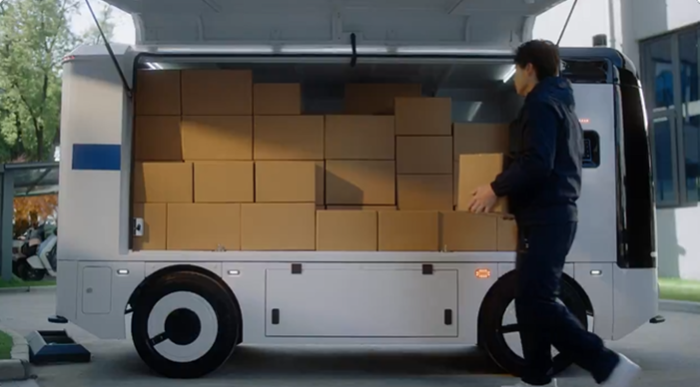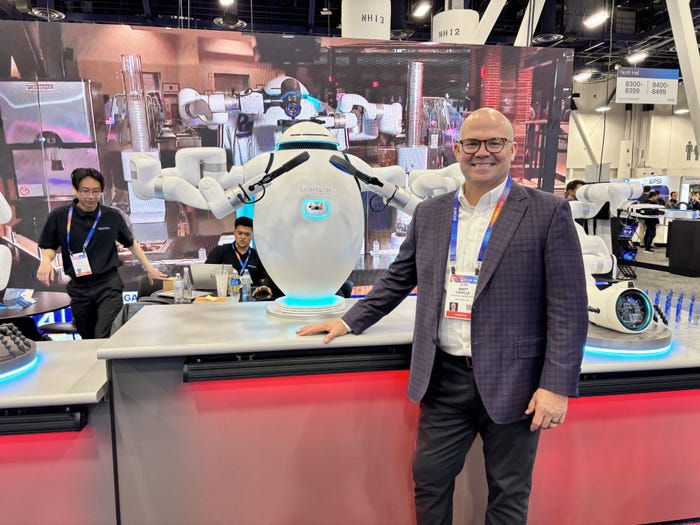Flying Taxi Company Signs Deal for U.S. Airport Operations
The companies plan to focus on infrastructure deployment and operations at existing and coming sites

A German developer of an electric vertical takeoff and landing (eVTOL) jet is partnering with an airport operator to prepare more than 30 U.S. airport locations to handle the electric vehicles.
Electric aerial vehicle (EAV) maker Lilium and Atlantic Aviation agreed to jointly develop capabilities to handle the EAV in markets including Florida, Southern California, the Northeast corridor and Texas.
The companies plan to focus on infrastructure deployment and operations at existing and coming sites. Development plans include planning for flight paths, customer experiences, charging capabilities and operations forecasting.
“Our partnership with Atlantic Aviation is a critical step toward realizing our vision for a sustainable and accessible mode of high-speed regional travel,” said Sebastien Borel, Lilium chief commercial officer. “Atlantic’s extensive presence across major U.S. cities and expertise in ground infrastructure development and premier customer service will be invaluable in establishing a robust network that supports the Lilium Jet throughout the U.S.”
Lilium intends to manufacture and sell its Lilium Jet to individuals and companies for private, premium or shuttle operations. Lilium then would offer support and services.
Lilium recently agreed to purchase 120 chargers from microgrid company Star Charge for its ground and flight-testing vehicles.
Those chargers use a long, liquid-cooled charging cable for high-performance charging.
The deal followed an announcement that Lilium was teaming with jet and helicopter operator PhilJets to establish advanced air mobility (AAM) services in the Philippines and other Southeast Asia countries.
Lilium and PhilJets plan to jointly develop routes and determine passenger demand for an on-demand eVTOL service in the region.
That deal includes the sale of 10 Lilium jets to PhilJets.
This is not the first announcement relating to EAV services starting in the Philippines.
LuftCar, the developer of a hydrogen-powered eVTOL, also is expanding into the Philippines via a new partnership.
LuftCar and eFrancisco Motor Corporation (eFMC) in the Philippines recently formed a strategic partnership to develop and deploy the LuftCar flying car system in the Philippines.
The LuftCar hydrogen-powered air vehicle would connect to and lift road vehicles created by eFMC, a major jeepney manufacturer.
LuftCar plans to lead the EAV vehicle prototype development and eFMC would provide the vehicle chassis.
In the Lilium-PhilJets partnership, the plan is to bring high-speed regional air mobility to Southeast Asia.
Unlike most EAVs, the Lilium eVTOL craft is a jet.
The seven-seater vehicles are intended to be used to connect cities and towns up to 125 miles apart at speeds of up to 185 mph.
The flying vehicle features forward canards (small wings near the front) along with main wings and a distributed propulsion system with fixed landing gear without hydraulics.
During takeoff, the plane would use its 36 electric ducted fans to hover for up to 25 seconds and 20 seconds during the landing phase, according to the company. Most of the flight time would be in the cruise stage with a relatively short takeoff and landing time.
The company estimates the range of the craft at 150 miles.
Lilium recently teamed with the Lufthansa Group to explore opportunities in aviation including ground and flight operations, EAV maintenance and flight training in Europe.
Founded in 2015, Lilium has manufacturing facilities in Munich, Germany, with teams in the U.S. and Europe and recently started production of its vehicle with the European market expected to account for more than 9,000 vehicles through 2035.
The fuselage for the Lilium jet was developed by Aciturri in Spain, with delivery to Lilium facilities in Germany. Aciturri, also a Lilium investor, has designed and manufactured airframe components for Airbus, Boeing and Embraer.
.png?width=700&auto=webp&quality=80&disable=upscale)
Lilium has secured $192 million in financing in addition to a coming public offering. It received funding from different investors including board members and Tencent Holdings, an initial backer.
The Federal Aviation Administration (FAA) recently issued Lilium a certificate validation of its jet, having previously obtained airworthiness authority from the European Union Aviation Safety Agency.
The company is not alone in the race for new air transportation services, including flying cars, personal air vehicles, both ultralights, which do not require a pilot license, and certified vehicles, which require a license.
One eVTOL company, Joby Aviation, recently announced the planned building of a facility in Dayton, Ohio, to deliver up to 500 eVTOL vehicles a year. Joby has partnerships with Uber and Delta Air Lines.
Like what you've read? For more stories like this on flying cars and emerging technologies, sign up for our free daily email newsletter to stay updated!
Read more about:
Flying CarsAbout the Author
You May Also Like








